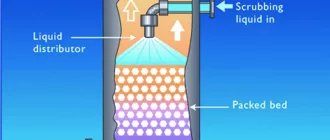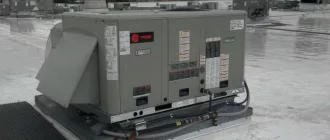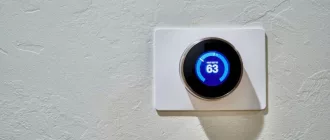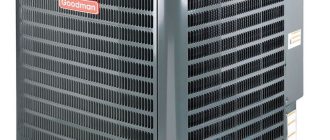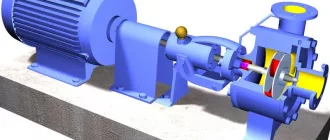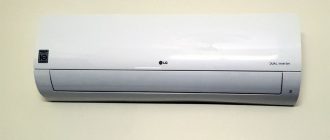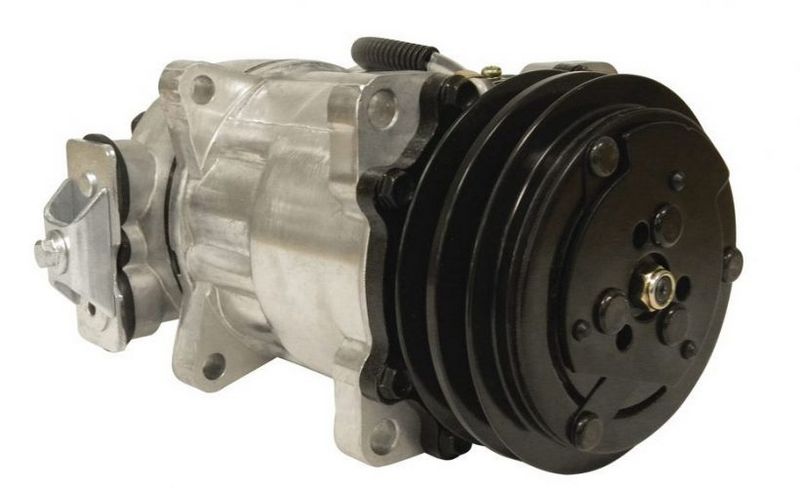
Can AC fan run without compressor?
When it comes to cooling down our homes, air conditioners play a crucial role. These devices consist of various components that work together to create a comfortable environment. One of the key components is the compressor, which is responsible for circulating and pressurizing the refrigerant, ultimately cooling the air. However, have you ever wondered if the AC fan can run without the compressor?
The answer is yes, the AC fan can run without the compressor. The fan is an essential part of the air conditioning system as it helps distribute the cool air throughout the space. Even if the compressor is not functioning or turned off, the fan can still operate on its own. This can be useful in situations where you need air circulation but don’t necessarily need the cooling effect provided by the compressor.
However, it’s important to note that running the AC fan without the compressor may not provide the desired cooling effect. The fan alone is not capable of cooling the air as effectively as when the compressor is running. The compressor is responsible for removing heat from the air, and without it, the fan can only circulate the existing air without cooling it down.
In conclusion, while the AC fan can run without the compressor, it may not provide the same cooling effect. The compressor plays a crucial role in the air conditioning system by cooling the air, and the fan alone cannot replicate this function. So, if you’re looking for optimal cooling, it’s important to ensure that both the compressor and the fan are working together.
Understanding How an AC System Works
An AC system, short for air conditioning system, is a complex network of components that work together to cool the air in a room or building. The key components of an AC system are the compressor, fan, and refrigerant.
The compressor plays a crucial role in the AC system. It is responsible for pressurizing and circulating the refrigerant, which is a substance that absorbs heat from the air. When the refrigerant is compressed, its temperature rises, allowing it to release heat into the outside environment.
While the compressor is running, the fan helps to move the air in the room or building, ensuring that it gets cooled by the refrigerant. The fan is located in the indoor unit of the AC system and blows the cooled air into the desired space. Without the compressor, the fan alone cannot cool the air effectively.
So, to answer the question, can an AC fan run without the compressor? The answer is no. The compressor is an essential component that must run for the AC system to cool the air properly. Without the compressor, the fan would just blow warm air around the room, providing little to no cooling effect.
In conclusion, understanding how an AC system works involves knowing the role of the compressor, fan, and refrigerant. The compressor pressurizes and circulates the refrigerant, while the fan helps to move the cooled air into the desired space. Both the compressor and fan are necessary for the AC system to effectively cool the air.
Importance of the Compressor in an AC System
The compressor is a crucial component of an AC system as it is responsible for the cooling process. Without the compressor, the AC system would not be able to function properly.
The main function of the compressor is to circulate refrigerant within the AC system. The compressor pressurizes the refrigerant, which raises its temperature. This high-temperature and high-pressure refrigerant then flows through the condenser, where it releases heat and cools down.
By removing heat from the refrigerant, the compressor allows the AC system to produce cool air. The cool refrigerant then passes through the evaporator coil, where it absorbs heat from the indoor air. As a result, the indoor air is cooled and circulated back into the room by the AC fan.
Without the compressor, the AC fan would simply circulate warm air without any cooling effect. The role of the compressor is vital in extracting heat from the indoor air and providing a comfortable environment.
Furthermore, the compressor also helps maintain the pressure difference between the high and low sides of the AC system, which is essential for the refrigerant to cycle through the system effectively. It ensures that the refrigerant flows smoothly, allowing for efficient cooling.
In summary, the compressor is a critical component of an AC system. Without it, the AC system would not be able to produce cool air and provide comfort. The compressor’s role in circulating refrigerant, removing heat, and maintaining pressure is essential for the proper functioning of the AC system.
What Happens When the Compressor Stops Working?
When the compressor stops working in an AC system, it can have several consequences. Firstly, the air conditioning unit will no longer be able to cool the air. This means that the temperature in the room or space will start to rise, and the AC will no longer be effective in providing a comfortable environment.
Additionally, when the compressor stops working, the fan can still run without it. However, without the compressor, the fan will only be able to circulate the existing air in the room rather than cool it down. This means that while the fan may provide some relief by creating airflow, it will not be able to provide the desired cooling effect that is typically associated with an AC system.
Furthermore, if the compressor stops working, it is important to address the issue as soon as possible. Leaving a malfunctioning compressor unrepaired can lead to further damage to the AC system and potentially result in the need for costly repairs or even replacement of the unit. Therefore, it is recommended to contact a professional HVAC technician to diagnose and fix the issue when the compressor stops working.
Can the AC Fan Continue to Operate Without the Compressor?
The compressor is an essential component of an AC system that is responsible for cooling the air. However, in certain situations, it is possible for the AC fan to continue running without the compressor.
When the compressor fails or malfunctions, the AC unit may still be able to blow air through the ducts using the fan. This means that you may still feel airflow coming out of the vents, but the air will not be cool.
Running the AC fan without the compressor can be useful in some cases. For example, if the compressor needs repair or replacement, you can still circulate air in your home using the fan while you wait for repairs.
It’s important to note that running the AC fan without the compressor is not a long-term solution. The AC system is designed to work with both the compressor and the fan, and without the compressor, it will not be able to cool the air effectively.
Additionally, running the AC fan without the compressor can put extra strain on the fan motor, potentially causing it to wear out faster. It can also lead to higher energy consumption, as the fan will need to work harder to circulate air without the cooling effect of the compressor.
If your AC system is not cooling properly, it’s best to have a professional HVAC technician inspect and repair the compressor. They will be able to diagnose the issue and provide a proper solution to restore the cooling functionality of your AC unit.
| – The AC fan can continue to run without the compressor, but the air will not be cool. |
| – Running the fan without the compressor is not a long-term solution. |
| – It can put extra strain on the fan motor and lead to higher energy consumption. |
| – Professional HVAC technicians should be consulted for compressor repairs. |
Impact on Cooling Efficiency
When the AC fan runs without the compressor, it can have a significant impact on cooling efficiency. The compressor is responsible for compressing the refrigerant gas and circulating it through the condenser and evaporator coils. This process is essential for absorbing heat from the indoor air and dissipating it outside.
Without the compressor, the AC fan is only blowing air through the system without any cooling effect. This means that while the fan may circulate and distribute air throughout the space, it won’t actually lower the temperature. The cooling capacity of the AC system relies on the compressor’s ability to remove heat from the air, so without it, the cooling efficiency is greatly diminished.
Furthermore, running the AC fan without the compressor can also result in increased energy consumption. The fan itself requires electricity to run, but without the cooling effect of the compressor, it has to work harder and longer to achieve the desired temperature. This can lead to higher energy bills and potentially overworking the fan motor.
| Reduced Cooling Capacity | The AC fan alone cannot remove heat from the air, resulting in a decrease in cooling capacity. |
| Inefficient Energy Consumption | The fan has to work harder and longer, leading to increased energy consumption and higher bills. |
| Potential Overworking | Running the fan without the compressor may put additional strain on the fan motor. |
In summary, while the AC fan can run without the compressor, it is not an efficient way to cool a space. The compressor is essential for removing heat from the air and achieving the desired temperature. Running the AC fan without the compressor not only reduces cooling capacity but also increases energy consumption. It is best to have both the compressor and fan working together for optimal cooling efficiency.
Is It Safe to Run the AC Fan Without the Compressor?
When it comes to running an AC fan without the compressor, it is generally safe to do so. The fan plays an essential role in circulating cool air throughout your home or office. Unlike the compressor, which is responsible for cooling the refrigerant, the fan does not directly contribute to the cooling process.
Running the fan without the compressor can help in situations where you want to circulate air in your space without actually cooling it. For example, you might want to use the fan to circulate air during mild weather or when you want to keep the air fresh indoors.
However, it is important to note that running the AC fan without the compressor will not provide any significant cooling effect. The fan alone cannot cool the air as effectively as when it is combined with the compressor. Therefore, if you are looking for a way to cool your space, it is recommended to run both the fan and the compressor together.
Furthermore, running the fan without the compressor for an extended period of time can result in higher electricity consumption. The compressor is responsible for removing heat from the refrigerant, allowing the cooling process to take place. Without the compressor, the fan will continue to run, consuming energy without providing any significant cooling benefits.
In conclusion, it is generally safe to run the AC fan without the compressor. However, it is important to keep in mind that running the fan alone will not provide effective cooling and can result in higher electricity consumption. If you are seeking to cool your space, it is recommended to run both the fan and the compressor together for optimal results.
Possible Reasons for a Non-Functioning Compressor
There are several reasons why the compressor in an AC unit may not be functioning properly. Some of the possible reasons include:
1. Lack of power supply: If the compressor is not receiving enough power, it may not be able to run. This could be due to a tripped circuit breaker, a blown fuse, or a faulty electrical connection.
2. Faulty thermostat: The thermostat controls the operation of the compressor. If the thermostat is not functioning correctly, it may not be sending the signal for the compressor to run.
3. Low refrigerant level: The compressor relies on refrigerant to operate. If the refrigerant level is too low, the compressor may not be able to function properly.
4. Faulty compressor motor: The motor is what powers the compressor. If the motor is faulty or worn out, the compressor may not be able to run.
5. Overheating: If the compressor becomes overheated, it may shut down to prevent damage. This can be caused by a dirty condenser coil, a malfunctioning fan, or restrictions in airflow.
6. Mechanical failure: The compressor is a complex mechanical component, and various internal parts can wear out or fail over time. This can result in the compressor no longer being able to function properly.
It is important to address any issues with the compressor promptly, as a non-functioning compressor can lead to a lack of cooling and potential damage to other parts of the AC system.
Repair vs. Replacement Options
When it comes to AC fans, there are two options to consider: repair or replacement. Depending on the specific issue with the AC fan, it may be possible to fix it without having to replace the entire unit.
If the AC fan can run without the compressor, it could indicate a problem with the compressor itself. In this case, repairing the compressor might be a viable option. A professional technician can diagnose the issue and determine the best course of action.
- Repair: If the problem with the AC fan is minor, such as a faulty motor or a damaged fan blade, it may be possible to repair it. This could involve replacing the faulty components or fixing any wiring issues. Repairing the AC fan can be a cost-effective option, especially if the rest of the unit is in good condition.
- Replacement: In some cases, the AC fan may have a major problem that cannot be easily repaired. If the compressor is faulty or if there are multiple issues with the fan, it may be more practical to replace the entire unit. While this can be a more expensive option upfront, it can provide a long-term solution and ensure efficient cooling.
Ultimately, the decision between repair and replacement will depend on the specific issue with the AC fan and the overall condition of the unit. It is recommended to consult with a professional technician to get an accurate diagnosis and expert advice on the best course of action.
Signs That the Compressor Is Not Working
If your AC is running without the compressor, there are some key signs that indicate the compressor is not working properly:
1. Lack of cooling: The compressor is responsible for cooling the air in your AC unit. If it’s not working, you may notice a lack of cool air or no cooling at all.
2. Warm air: Instead of cool air, you may feel warm air coming from your AC. This can be a sign that the compressor is not working effectively.
3. Strange noises: A malfunctioning compressor can produce strange noises such as clicking, hissing, or banging sounds. If you hear any of these noises, it’s a sign that the compressor may need repair or replacement.
4. Tripped circuit breaker: If your AC keeps tripping the circuit breaker, it could be a result of a faulty compressor. The compressor may be drawing too much power, causing the breaker to trip.
5. Increased energy consumption: A compressor that is not functioning properly may consume more energy than usual. If you notice a sudden increase in your energy bills, it could be due to a faulty compressor.
6. Ice buildup: Another sign of a compressor issue is the buildup of ice on the evaporator coil. A malfunctioning compressor can cause the coil to become too cold and freeze, leading to reduced cooling efficiency.
If you observe any of these signs, it is important to have a professional HVAC technician inspect your AC unit and diagnose the problem. They will be able to determine if the compressor is indeed the issue and recommend the appropriate solution, whether it be repair or replacement.
Common Misconceptions About AC Fans and Compressors
There are several common misconceptions about AC fans and compressors that need to be clarified. One of the most prevalent misconceptions is that an AC fan can run without the compressor.
However, this is not the case. The fan is an integral part of the AC system and relies on the compressor to function properly.
It’s important to understand that the fan and the compressor work together to cool the air in your home or office space. The compressor is responsible for compressing the refrigerant gas and raising its temperature, while the fan helps to circulate the cooled air throughout the space.
Without the compressor, the refrigerant gas would not be able to cool down, and there would be no chilled air for the fan to circulate. In other words, the fan cannot cool the air on its own; it needs the compressor to do its job.
Another misconception is that running the fan without the compressor can save energy. While it’s true that running the fan alone may use less energy than running the entire AC system, it’s not an efficient way to cool your space. Without the compressor, the fan would simply be circulating the warm air and not providing any cooling effect.
In conclusion, the AC fan cannot run without the compressor. They are both essential components of the system and work together to cool the air. Running the fan alone without the compressor is inefficient and will not provide the desired cooling effect. It’s important to understand these misconceptions to ensure the proper functioning of your AC system.
Alternative Cooling Methods
While an AC unit typically relies on the compressor to cool the air, there are alternative methods that can be used to achieve a comfortable indoor temperature.
One alternative cooling method is the use of fans. Fans can help circulate the air in a space, creating a breeze and providing some relief from the heat. However, it is important to note that fans do not actually cool the air, but rather create a wind chill effect which can make it feel cooler.
Another alternative cooling method is the use of evaporative coolers. These devices, also known as swamp coolers, work by drawing air through a wet pad or filter. As the air passes through the pad, the water evaporates, which causes the air to cool down. Evaporative coolers are mainly effective in dry climates, as they add moisture to the air.
Additionally, using shade or blinds to block out direct sunlight can help keep a space cooler. This method can help reduce the amount of heat that enters a room from the sun, thereby lowering the overall temperature.
It is worth noting that while these alternative cooling methods can provide some relief, they may not be as effective as a functioning AC unit with a running compressor. The compressor plays a crucial role in cooling the air by pressurizing the refrigerant and causing it to release heat. Without the compressor, an AC unit may not be able to effectively cool the air.
Benefits of Repairing or Replacing the Compressor
If your AC fan can run without the compressor, it may seem like you can avoid repairing or replacing the compressor altogether. However, there are several benefits to consider when it comes to repairing or replacing the compressor.
- Improved Cooling Efficiency: The compressor is the heart of the AC system, responsible for compressing and circulating the refrigerant to remove heat from the air. A faulty or inefficient compressor can result in reduced cooling efficiency. Repairing or replacing the compressor can help restore the unit’s ability to cool effectively.
- Increased Energy Efficiency: A malfunctioning compressor can cause the AC system to consume more energy than necessary. By repairing or replacing the compressor, you can optimize energy usage and potentially reduce your electricity bills.
- Extended Lifespan of the AC Unit: The compressor is one of the most expensive components of an AC system. However, repairing or replacing the compressor can extend the lifespan of the entire unit. Ignoring compressor issues can lead to further damage to other parts of the system, resulting in more extensive and costly repairs.
- Enhanced Comfort: A properly functioning compressor ensures that the AC system can cool your space effectively. By repairing or replacing the compressor, you can experience consistent and comfortable indoor temperatures, even during hot summer months.
- Peace of Mind: Knowing that your AC system has a reliable and efficient compressor can provide peace of mind. You won’t have to worry about sudden breakdowns or emergency repairs, as a well-maintained compressor can help prevent such situations.
Overall, repairing or replacing the compressor in your AC system can bring several benefits, including improved cooling efficiency, increased energy efficiency, extended lifespan of the unit, enhanced comfort, and peace of mind. It is important to consult a professional technician to assess the condition of your compressor and determine the best course of action.
Preventive Maintenance to Avoid Compressor Issues
Regular preventive maintenance is crucial for keeping your AC system running smoothly and avoiding compressor issues. While it is possible for the fan to run without the compressor, it is important to maintain the entire system to ensure its optimal performance.
Here are some preventive maintenance tips to help you avoid compressor issues:
1. Clean or replace air filters regularly: Dirty air filters can restrict airflow and put unnecessary strain on the compressor. Clean or replace the filters every 1-2 months, or as recommended by the manufacturer.
2. Keep outdoor unit clear: Ensure that the outdoor unit is clear of debris, such as leaves, dirt, and grass, which can obstruct airflow and cause the compressor to overheat. Regularly clean the unit and maintain a clear space around it.
3. Schedule professional tune-ups: Regular professional maintenance by a qualified technician can identify and address potential issues before they become major problems. They can check the compressor for any signs of wear and tear and perform necessary repairs or replacements.
4. Maintain proper refrigerant levels: Low refrigerant levels can cause the compressor to work harder, leading to reduced efficiency and potential damage. Regularly check and maintain proper refrigerant levels to keep the compressor operating smoothly.
5. Check electrical connections: Loose or faulty electrical connections can disrupt the compressor’s operation. Inspect and tighten these connections regularly to prevent any issues.
6. Monitor temperature and performance: Keep an eye on the temperature and performance of your AC system. If you notice any unusual fluctuations or reduced cooling efficiency, it may indicate compressor issues. Address them promptly to prevent further damage.
By following these preventive maintenance steps, you can help prolong the life of your AC system and avoid costly compressor repairs or replacements.
Cost Considerations for Compressor Repair or Replacement
When it comes to the functioning of an AC system, the compressor plays a crucial role in cooling the air. However, there may be instances where the AC fan can run without the compressor. While this may provide temporary relief, it is important to address any issues with the compressor to avoid further damage and ensure optimal performance of the AC system.
Repairing or replacing a compressor can be a significant cost consideration. The exact cost will depend on various factors, including the make and model of the AC system, the severity of the compressor damage, and the availability of replacement parts. In some cases, repairing a compressor may be a viable option, especially if the damage is minor and can be fixed without affecting other components.
However, there are situations where compressor replacement might be necessary. This could be the case if the compressor is severely damaged, if it is outdated and incompatible with newer AC technology, or if the cost of repair exceeds the cost of replacement. When considering compressor replacement, it is important to consult with a professional technician who can assess the situation and provide an accurate estimate of the costs involved.
It is worth noting that delaying or ignoring compressor repair or replacement can lead to additional expenses in the long run. Running an AC fan without a properly functioning compressor can strain other components of the system, leading to further damage and potentially higher repair costs. Additionally, an inefficient or faulty compressor can result in increased energy consumption and higher utility bills.
Ultimately, when it comes to cost considerations for compressor repair or replacement, it is important to weigh the upfront cost against the long-term benefits. Investing in a high-quality replacement compressor or timely repairs can help ensure the efficient and reliable functioning of your AC system, ultimately saving you money in the long term.
In conclusion, while an AC fan can run without the compressor, addressing any issues with the compressor is crucial for optimal performance and avoiding further damage. When considering repair or replacement, it is important to factor in the cost of parts, labor, and potential long-term savings associated with a fully functional compressor.
Expert Advice on AC Compressor Problems
If your AC is not functioning properly, one of the potential issues could be a problem with the compressor. The compressor plays a crucial role in the cooling process of your AC system, as it is responsible for circulating refrigerant and pressurizing it, allowing it to absorb heat from the indoor air.
When the compressor malfunctions or fails completely, your AC may exhibit certain symptoms. One common indication of compressor problems is when the AC fan operates without the compressor. In such cases, the fan may continue to blow air, but it will not be cool air since the compressor is not functioning.
If your AC fan is running without the compressor, it could indicate various compressor issues. Some possible causes include a faulty start capacitor, a defective motor, low refrigerant levels, or a damaged compressor clutch. It is essential to address these issues promptly to ensure that your AC functions efficiently and effectively.
It is recommended to seek the assistance of a professional HVAC technician to diagnose and repair compressor problems. A trained expert will be able to identify the underlying cause of the compressor malfunction and provide the necessary repairs or replacements.
Attempting to fix compressor issues on your own can be challenging and potentially dangerous, as it involves working with high-voltage electrical components and refrigerant. It is best to leave compressor repairs to the professionals who have the knowledge and experience to handle such tasks safely.
Regular maintenance of your AC system can help prevent compressor problems and extend the lifespan of your unit. Schedule annual maintenance checks with a qualified technician to ensure that your AC is in top condition and to address any potential issues before they escalate.
In conclusion, if your AC fan is running without the compressor, it is a sign of compressor problems that need to be addressed promptly. Seek the advice and expertise of a professional HVAC technician to diagnose and repair these issues and ensure the efficient and effective operation of your AC system.
Q&A:
Is it possible for an AC fan to run without the compressor?
Yes, it is possible for an AC fan to run without the compressor. The fan is responsible for circulating the air while the compressor is responsible for cooling and dehumidifying the air. If the compressor is not running, the fan can still operate, but it will not blow cool air.
What happens if the AC fan runs without the compressor?
If the AC fan runs without the compressor, it will only circulate the room air without cooling it. This means that the air blown by the fan will not be cold, and it may not provide the desired comfort during hot weather. The compressor is the main component that cools the air, and without it, the AC system will not be able to provide cold air.
Can a faulty compressor cause the AC fan to stop working?
Yes, a faulty compressor can cause the AC fan to stop working. The compressor is an essential component of the AC system, and if it malfunctions or fails, it may not provide power to the fan motor. In this case, the fan will not run even if the AC is turned on. It is recommended to have a professional technician inspect and repair the faulty compressor to restore normal operation of the AC system.
Is it possible for the AC fan to run continuously without the compressor?
Yes, it is possible for the AC fan to run continuously without the compressor. Some AC systems have a dedicated fan mode that allows the fan to run independently of the compressor. This mode can be useful in situations where you want to circulate the air without cooling it, such as during mild weather. However, it is important to note that running the fan continuously without the compressor may lead to higher energy consumption and reduced efficiency of the AC system.

